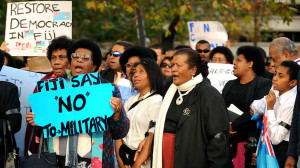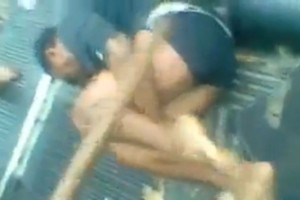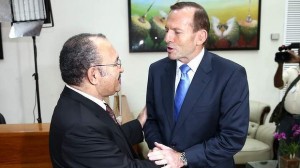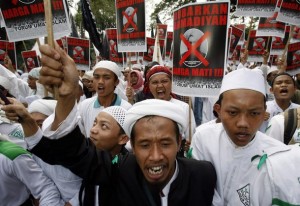by Max Bartels
Impunity Watch Reporter, Oceania
Manokwari, West Papua
West Papua is the western half of the of the Island of New Guinea, the other half being the nation of Papua New Guinea. West Papua has been under the control of the Indonesian government since the late 1960s when a vote mandated by the U.N ended in a sham where only a handful of the indigenous population were allowed to vote. As a result of the vote the province remained in the hands of the Indonesian government against the will of the majority of the local population.
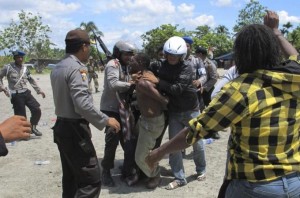
(Photo curtesy of Aljazeera)
The West Papuan Independence movement has since had the goal of expelling Indonesian occupation from West Papua. There have been many similar incidents over the years but the most recent was in April. There was a shooting near the border with Papua New Guinea where the resistance fighters shot an Indonesian border guard and set a car wash on fire. The resistance fighters raised the flag of West Papua as a symbol of resistance.
There seems to be a split amongst West Papuan leaders on the best approach to achieve their goals. Some support the actions of the independence movement, most of these leaders now live in a exile in countries and islands around the South Pacific. Other leaders, mainly those in the West Papuan congress believe that it is better to work with the Indonesian government to achieve a better standard of living within the province.
In February the Guardian reported an incident in a West Papuan village where the Indonesian military and police woke up the locals at 3am and shuffled all the families into the town square to be questioned for their involvement in the resistance movement. Many people were interrogated with guns held to their heads, others were arrested and beaten and some families were forced to burn down their own homes.
The resistance movement has a lack of outside international support. While it has been reported that the Indonesian government has committed many human rights offenses to the indigenous population of West Papua, the Indonesian government still has the support of the Australian government. Indonesia is an import political ally for Australia and therefore Australia has not been unwilling to support the movement. West Papuan exiles have also been denied entry into Australia.
Recently two French journalists attempted to enter West Papua in an attempt to film a documentary on the resistance movement. Both were arrested for visa violations, France and the U.S have appealed to Indonesia to lessen their restrictions on journalism in West Papua.
For more information, please see:
The Guardian — West Papuan Independence Fighters Injure Two in Border Shooting — 8 April 2014
The Guardian — West Papuan Independence Movement- a History — 28 August 2013
